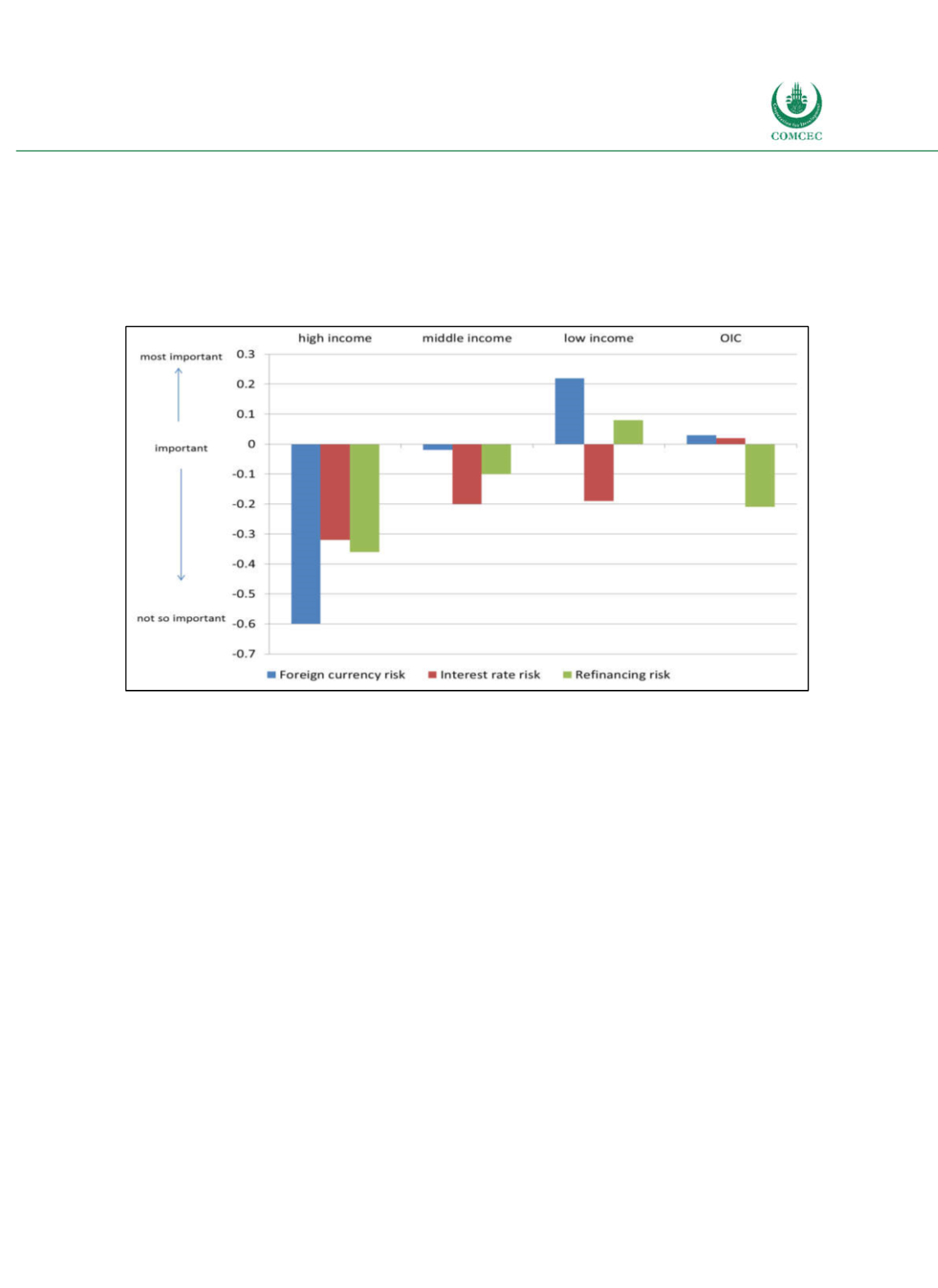

Improving Public Debt Management
In the OIC Member Countries
41
characterised by an environment where foreign currency risk and interest rate risk are
evaluated to be almost equally important. Noteworthy is the low relevance of refinancing risk
in the OIC sample. For all three types of risks individually holds that their importance is
considered to be negatively correlated with the level of income: All three types of risk are
attributed the highest importance in lowincome countries and the lowest in highincome
countries.
Figure 2-17: Importance of Risk Categories in Public Debt Management
Source: Ifo World Economic Survey (WES) IV/2016.
Domestic debt markets are an important source of financial resources for governments. A wellfunctioning domestic market for public debt helps to reduce risks linked to public debt
because it provides additional diversification opportunities. Data suggest that lowincome
countries might try to expand their base of domestic creditors: while in 2015 highincome
countries relied mostly on domestic creditors (59%), lowincome countries only sold 31% of
their liabilities to domestic agents. Moreover, given that in many emerging and developing
countries the government is the largest debtor, it dominates debt markets and may assume a
crucial role in developing a functioning domestic debt market, which has positive spillovers for
the private sector.
WES experts were asked the following question: “How do you assess the functioning of the
domestic public debt market?” Possible answers were “good”, “satisfactory” or “bad, which
were again attributed values from +1 to 1, respectively. In the entire sample, public debt
markets are assessed to work below satisfactory levels (0.12). Figure 218 depicts the
distribution of unweighted individual answers. Public debt markets in highincome countries
received the best assessment (+0.14), in lowincome countries the worst (0.43). Public debt
markets in the group of OIC countries perform relatively unsatisfactory in the international
comparison (0.35).
These results are an indication for a positive correlation between the functioning of the
domestic debt market and the quality of public debt management: lowincome countries
received the least favourable assessment of both their domestic public debt market
















